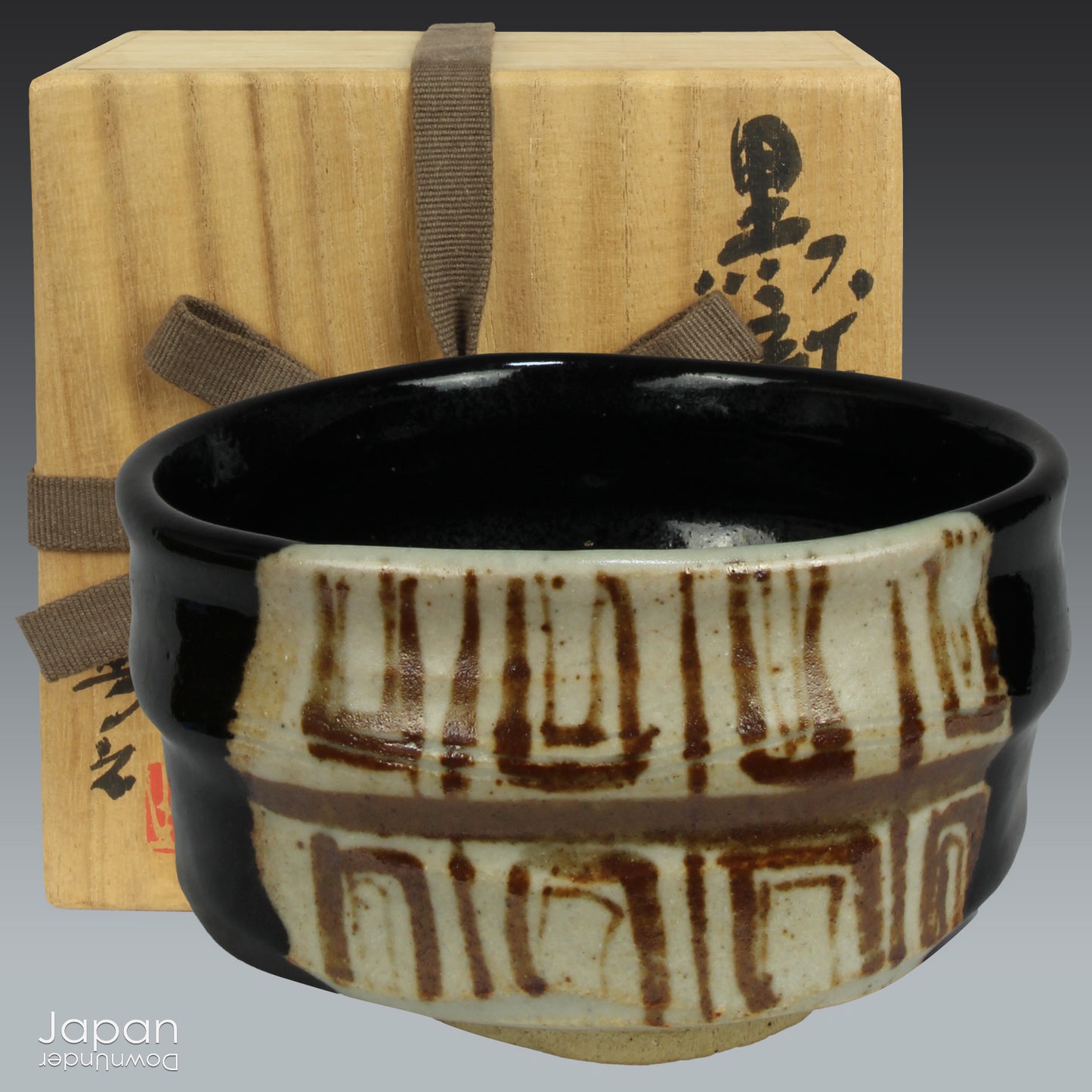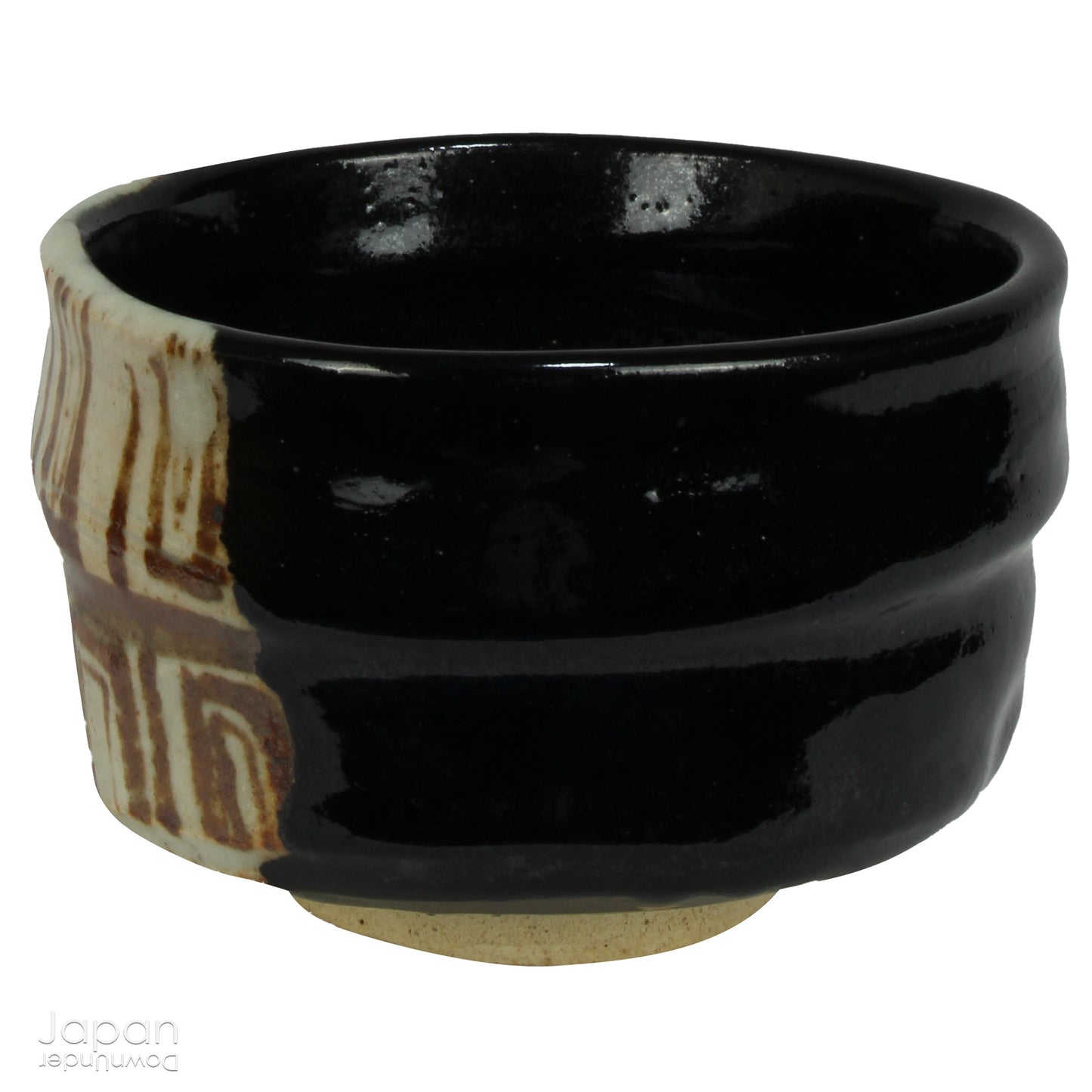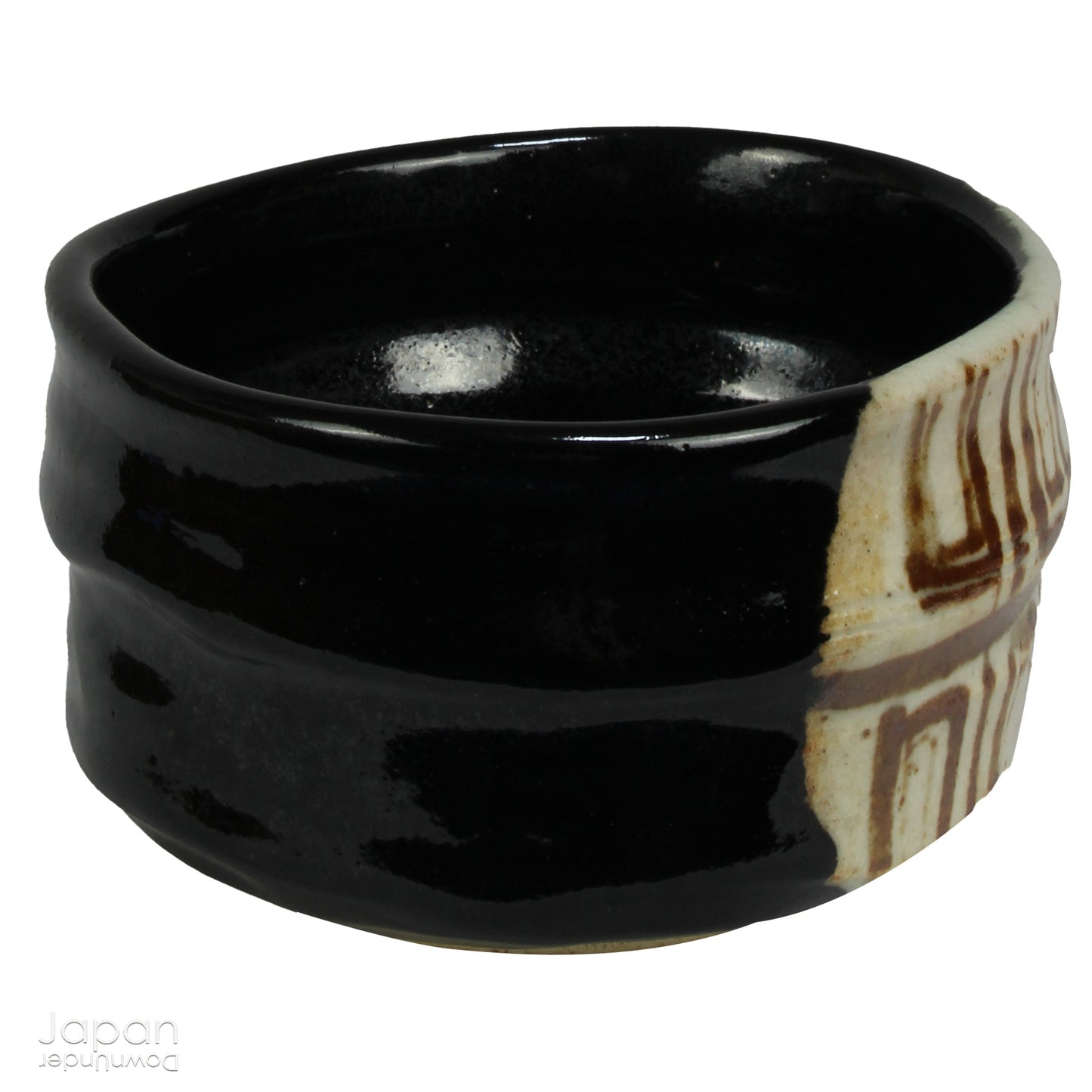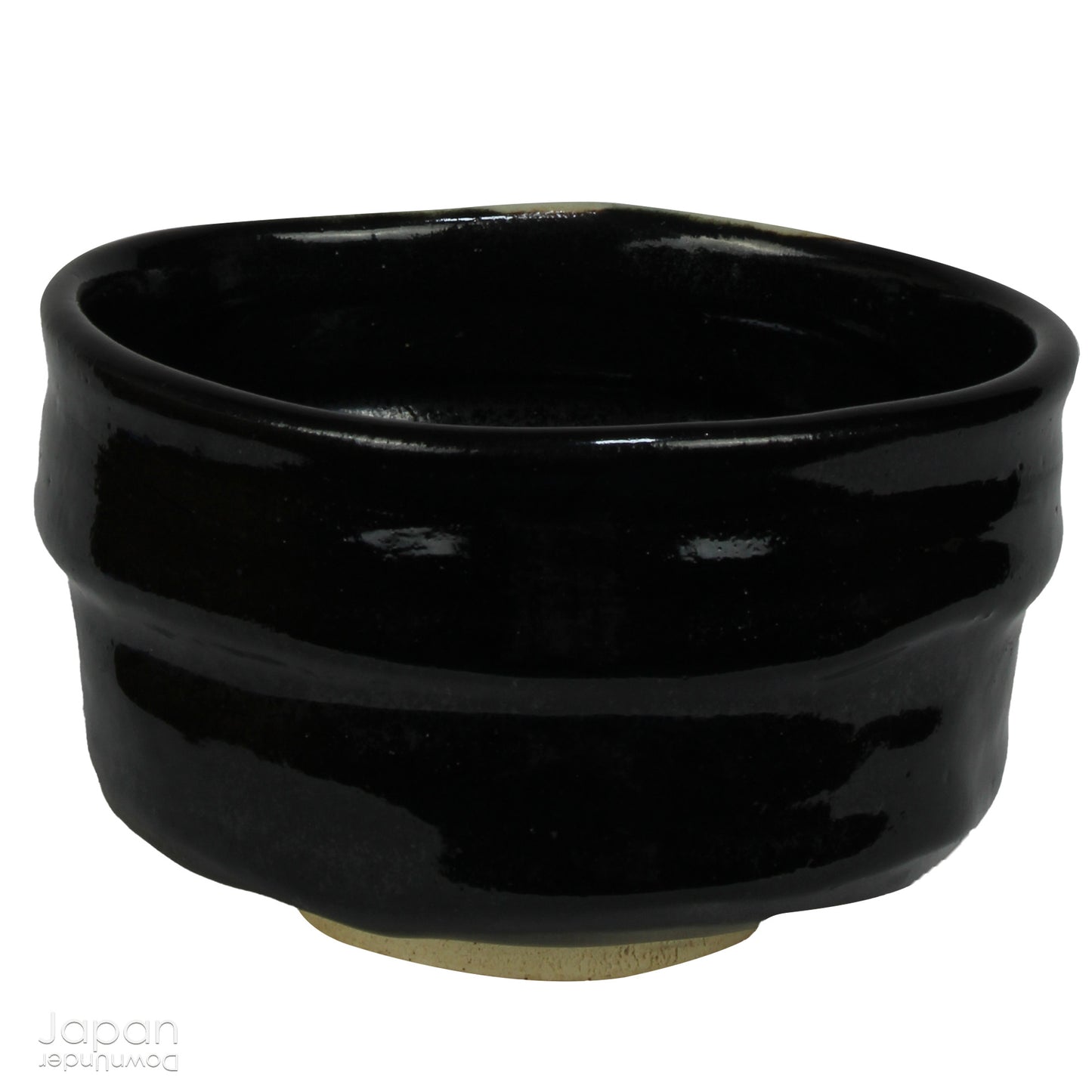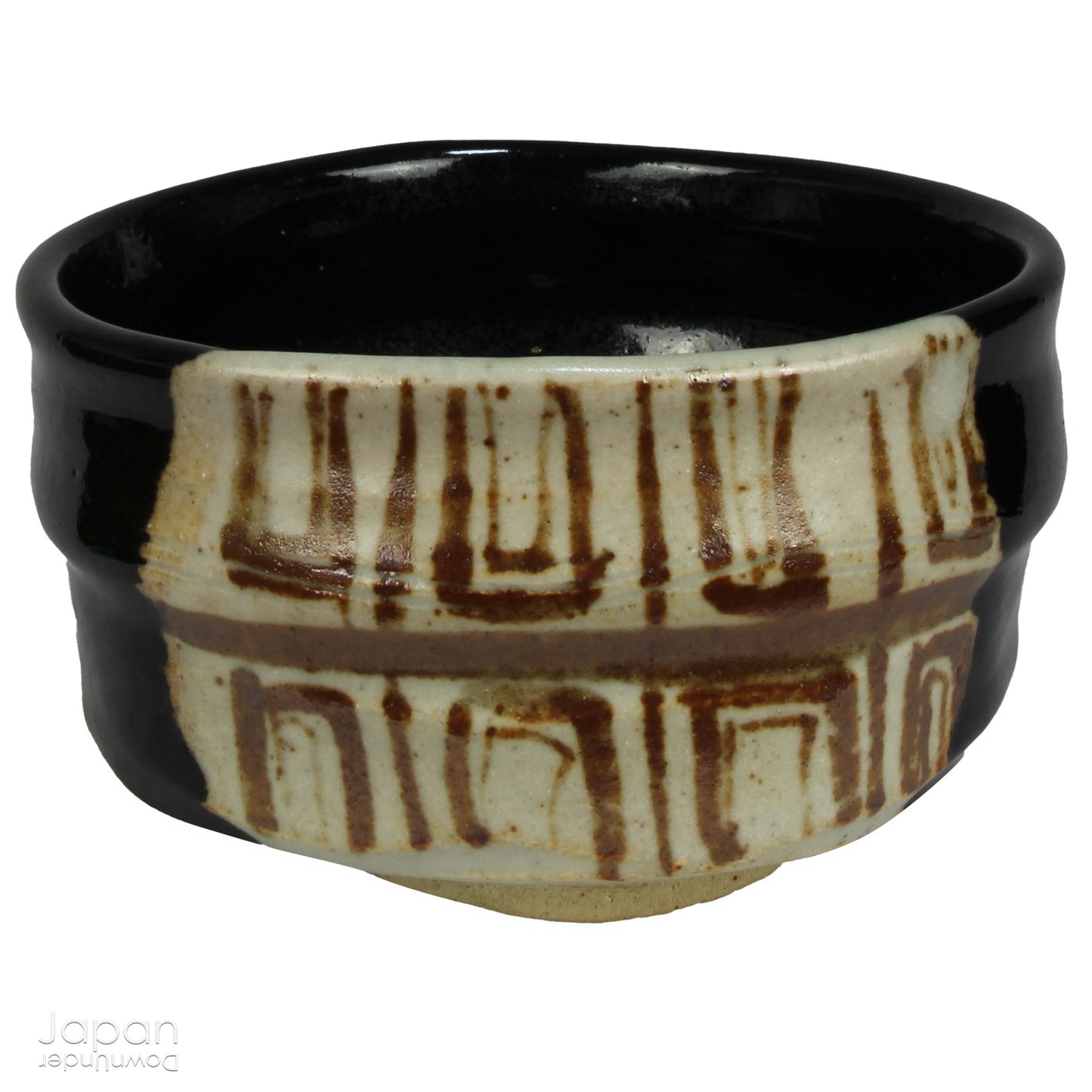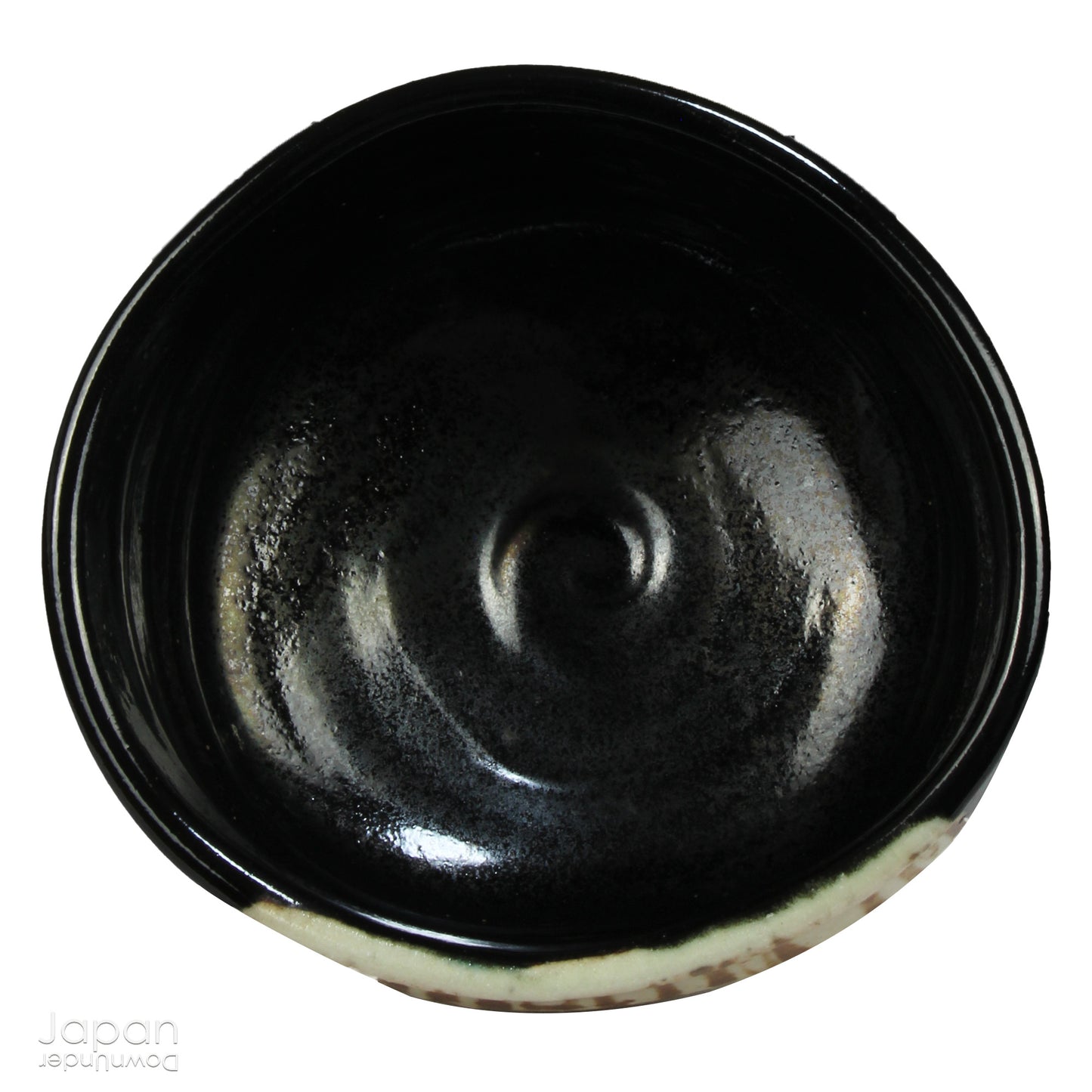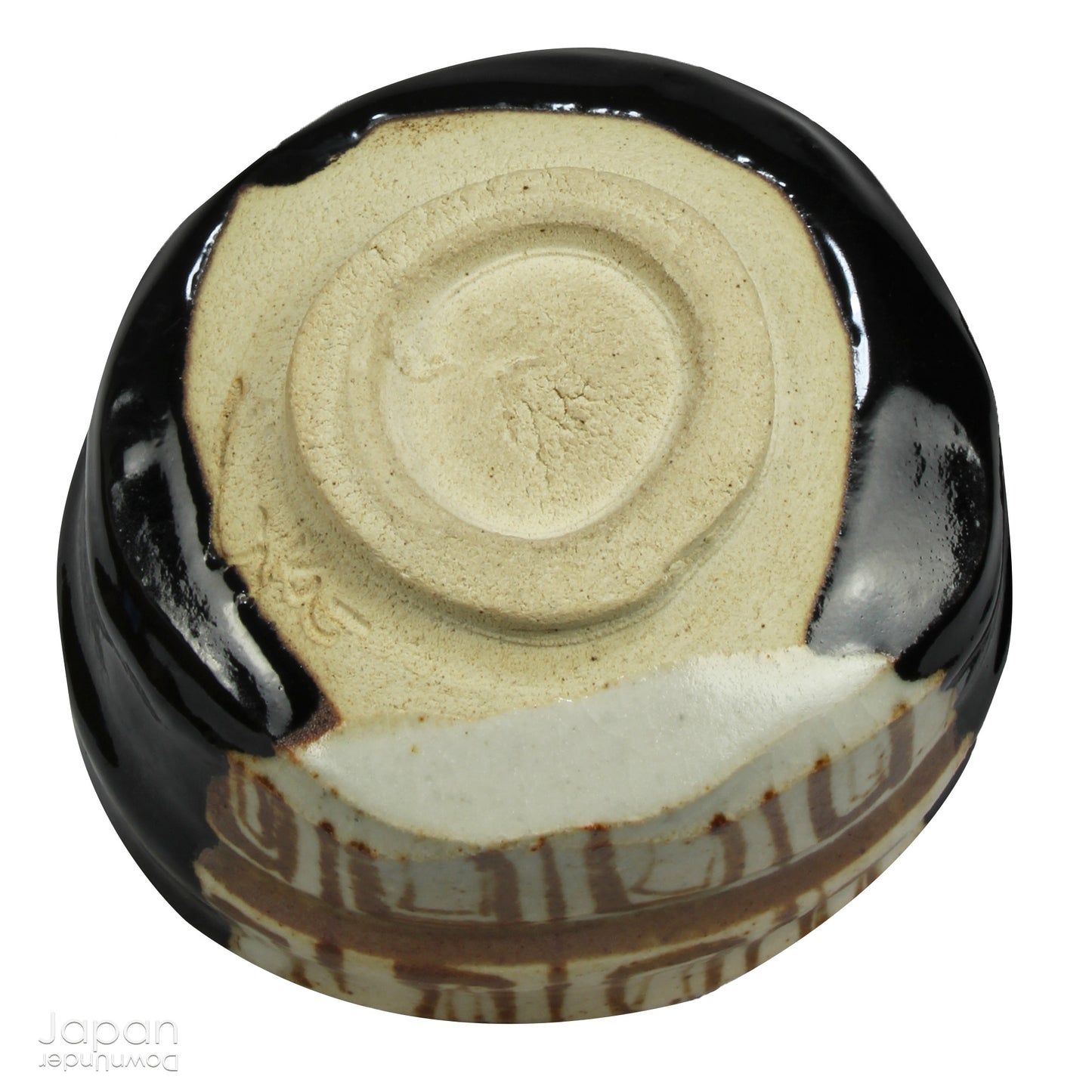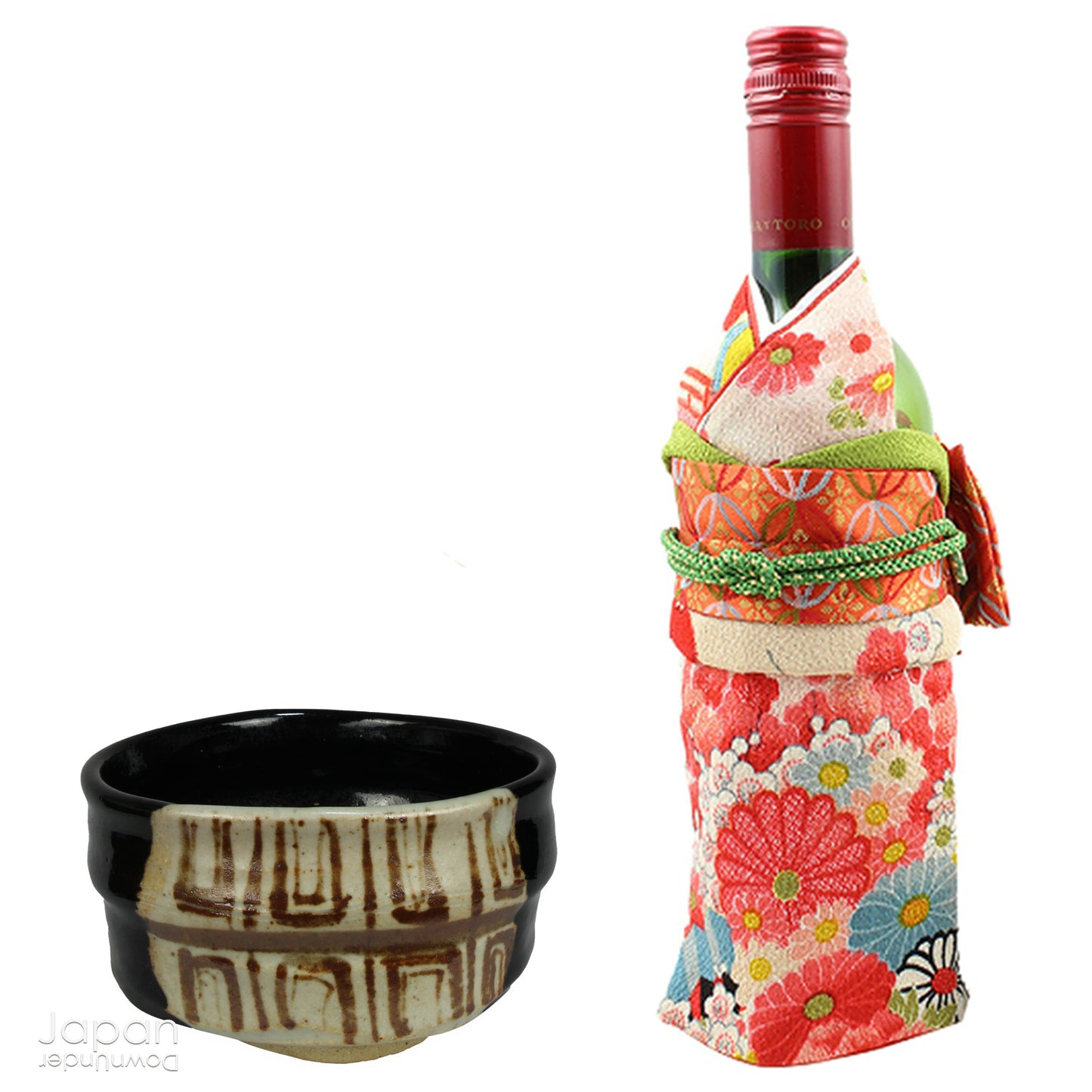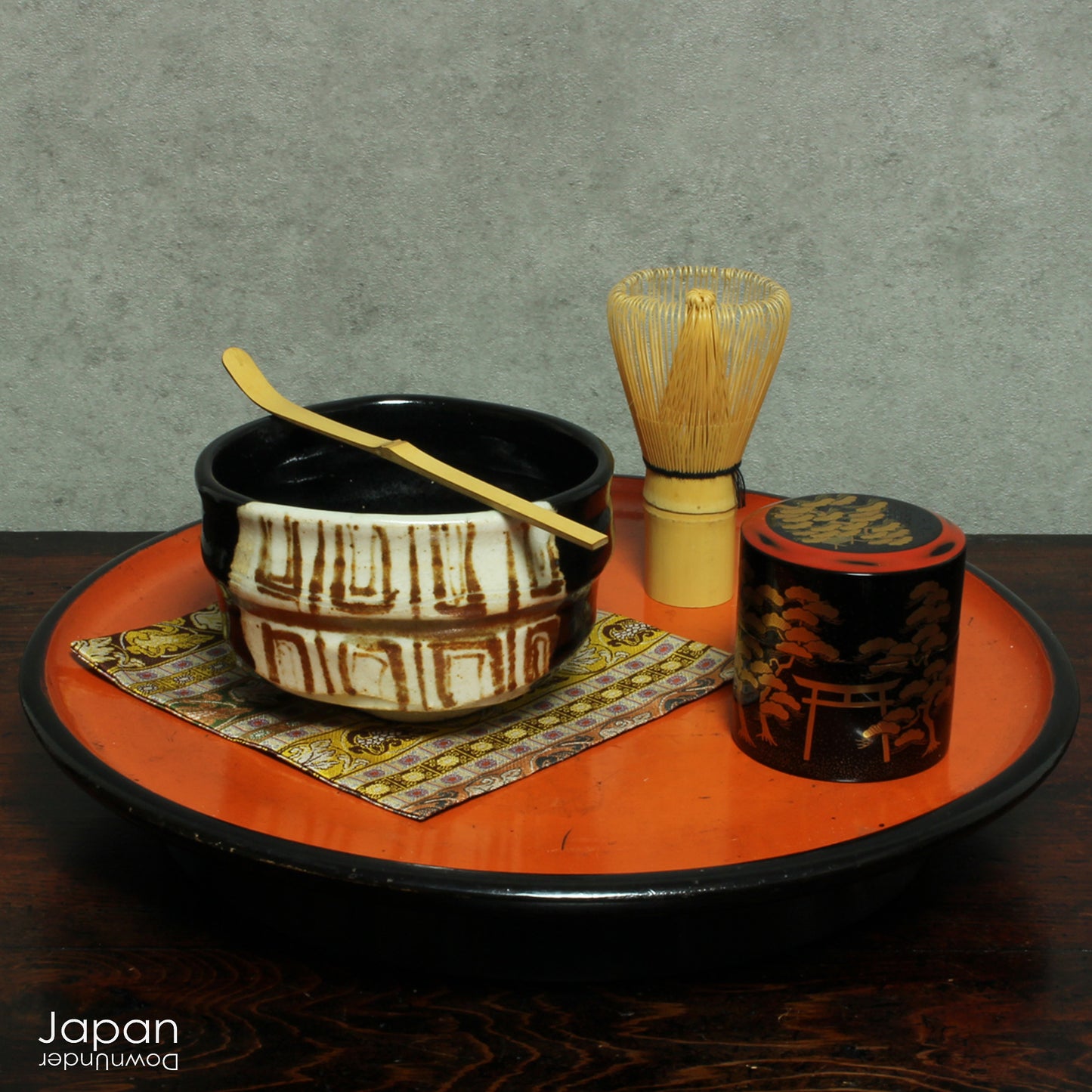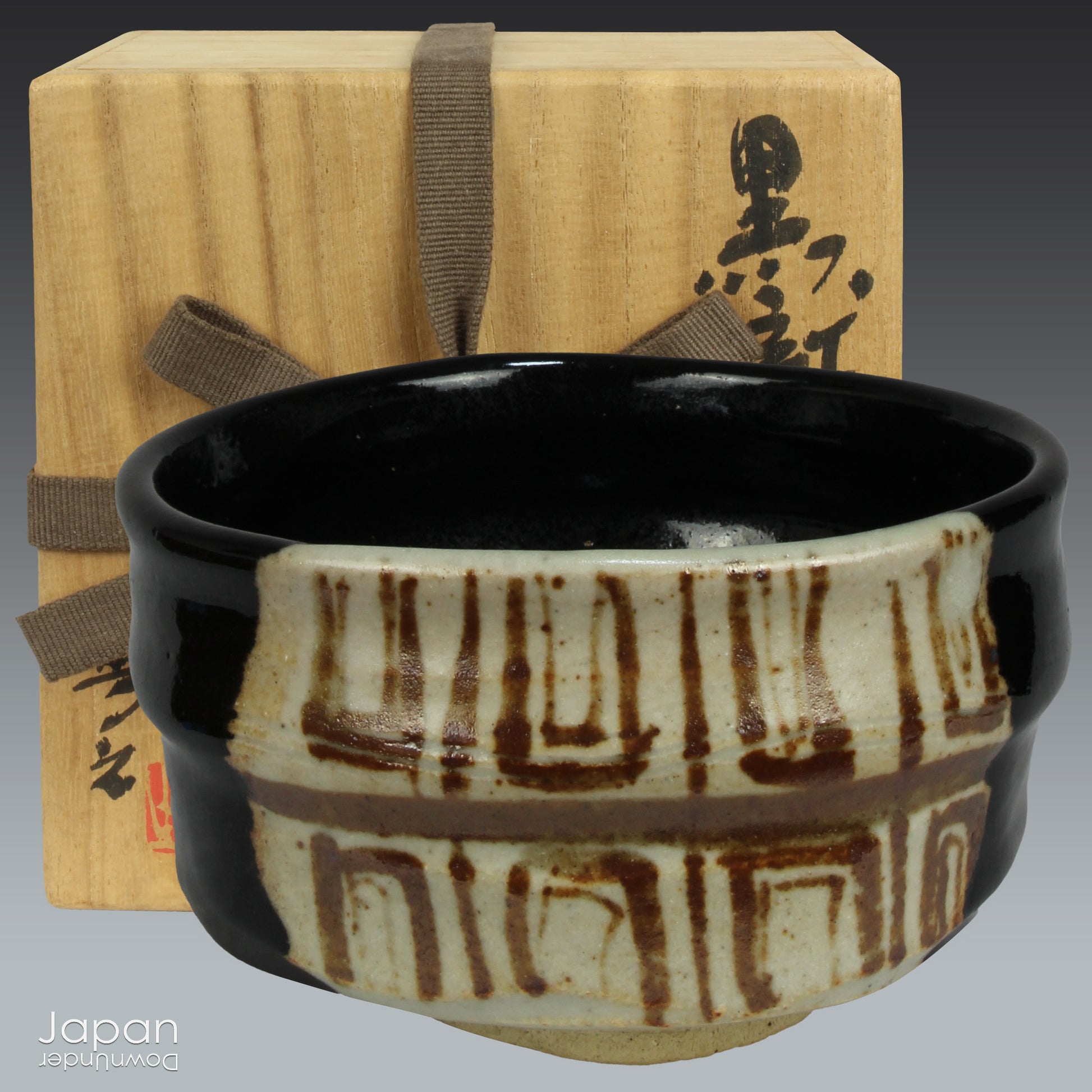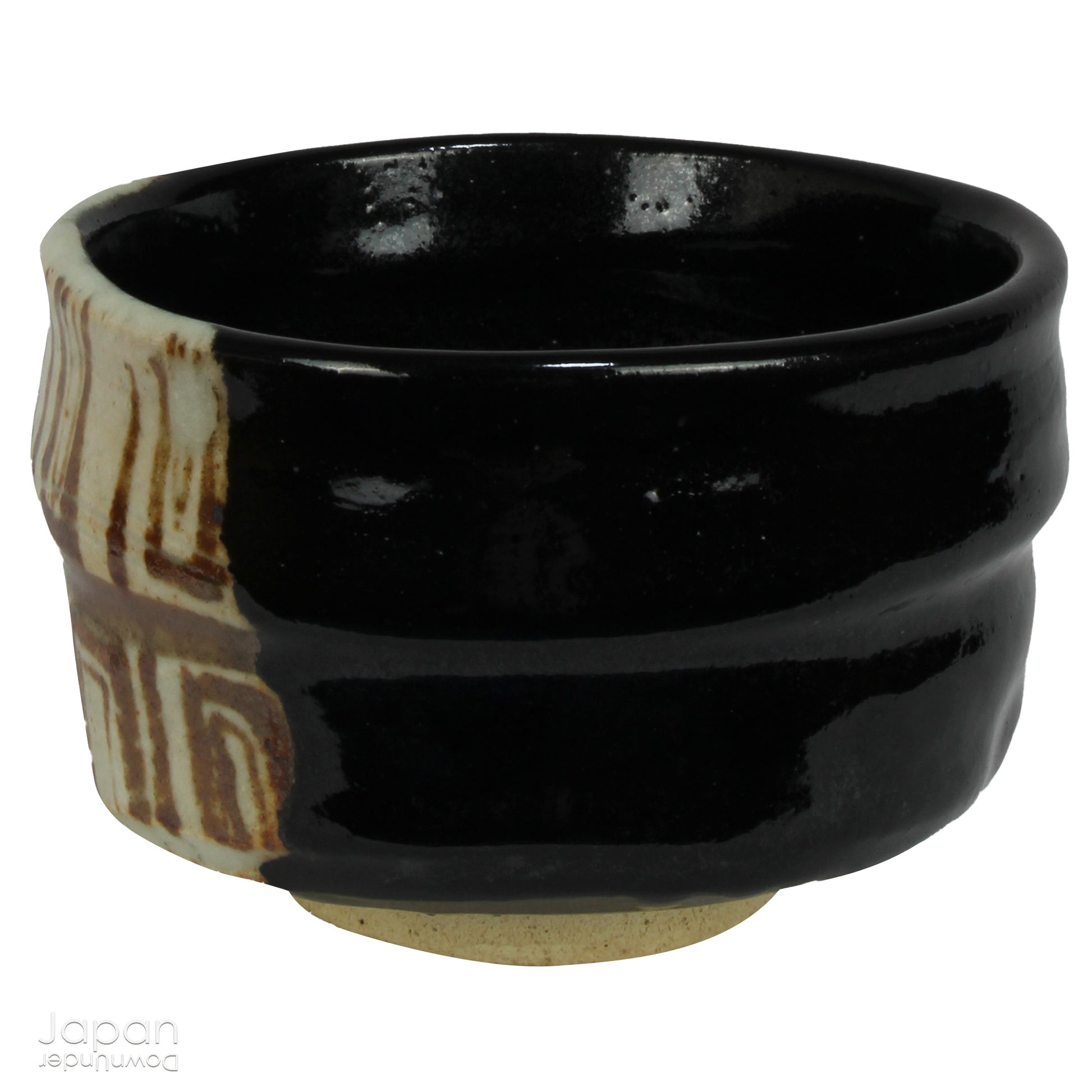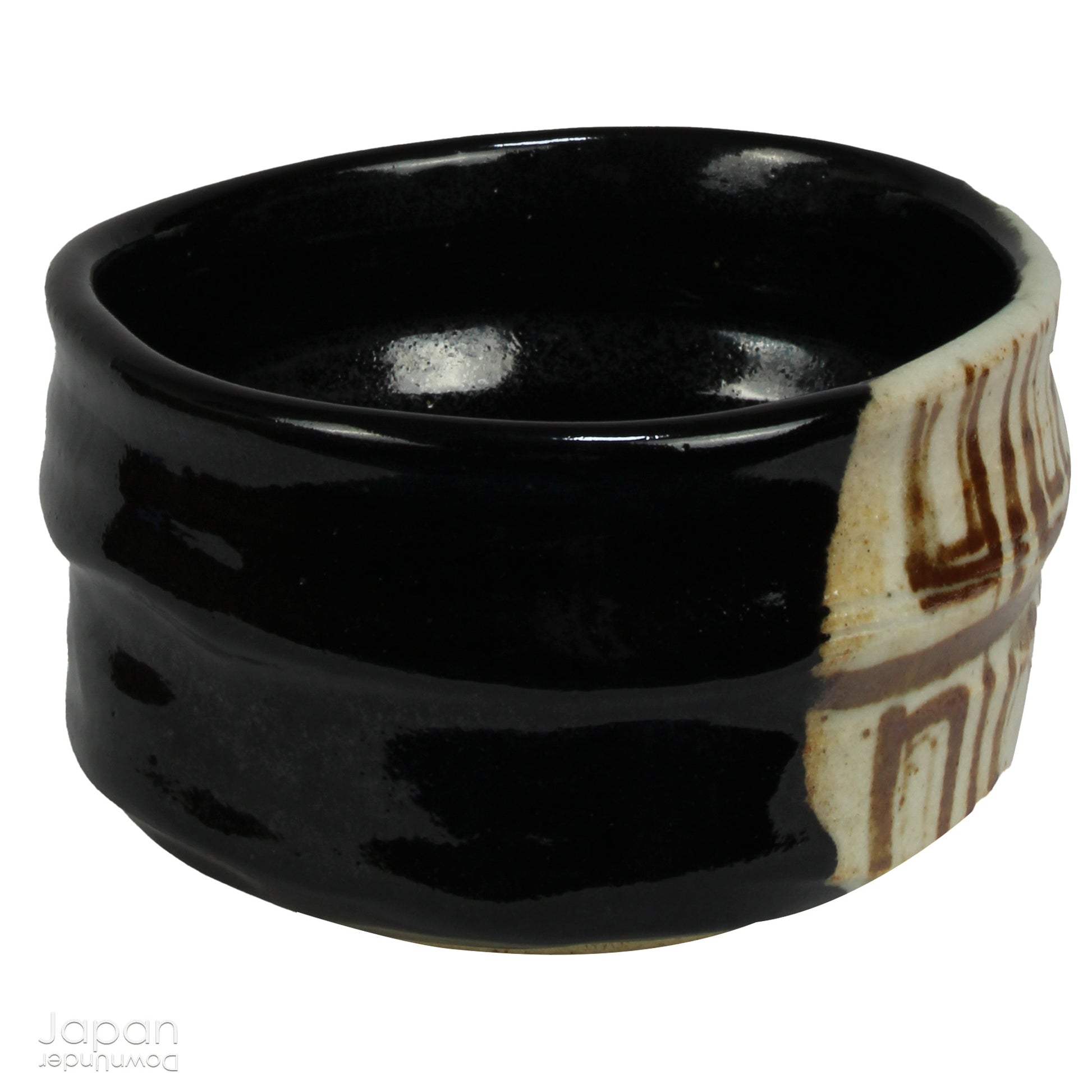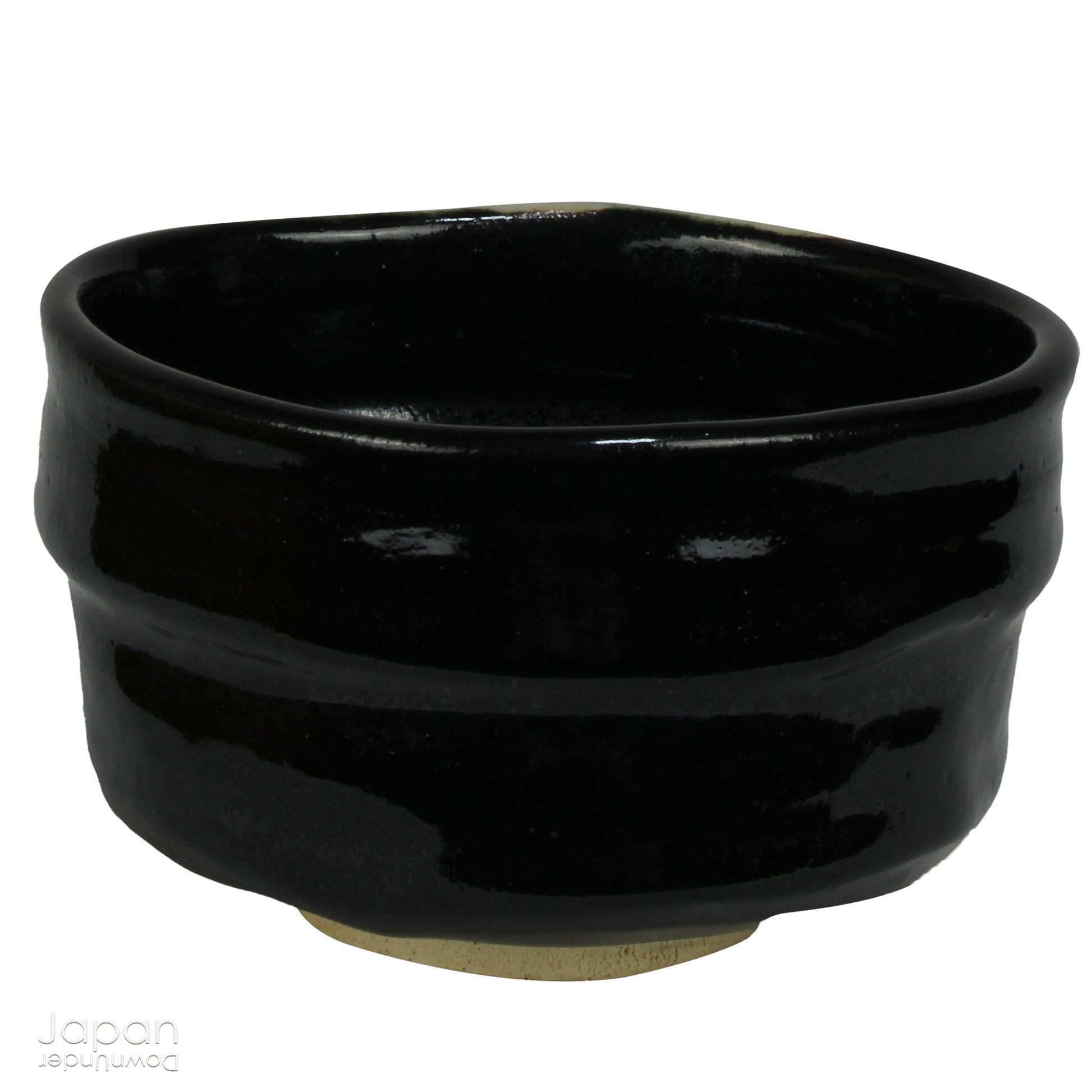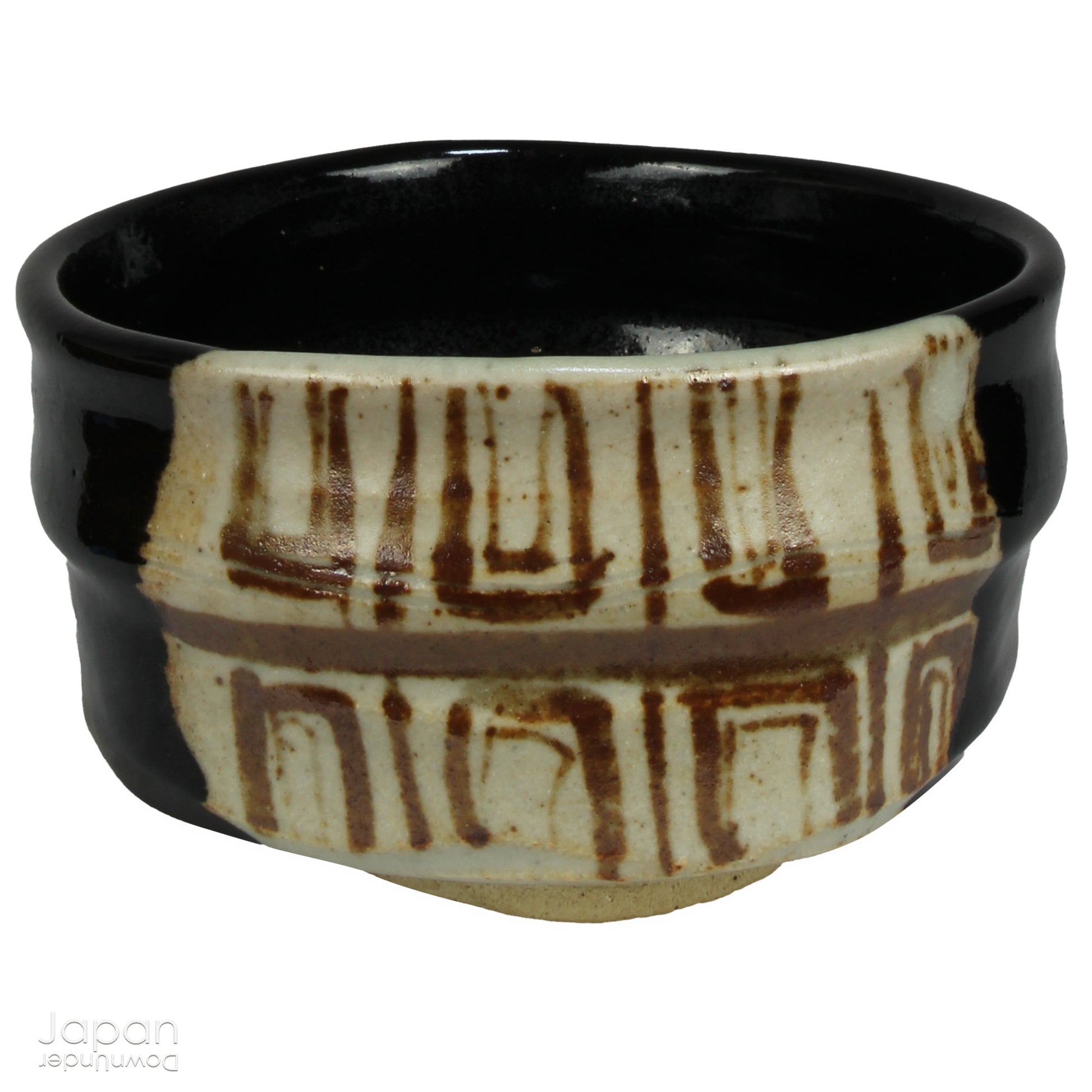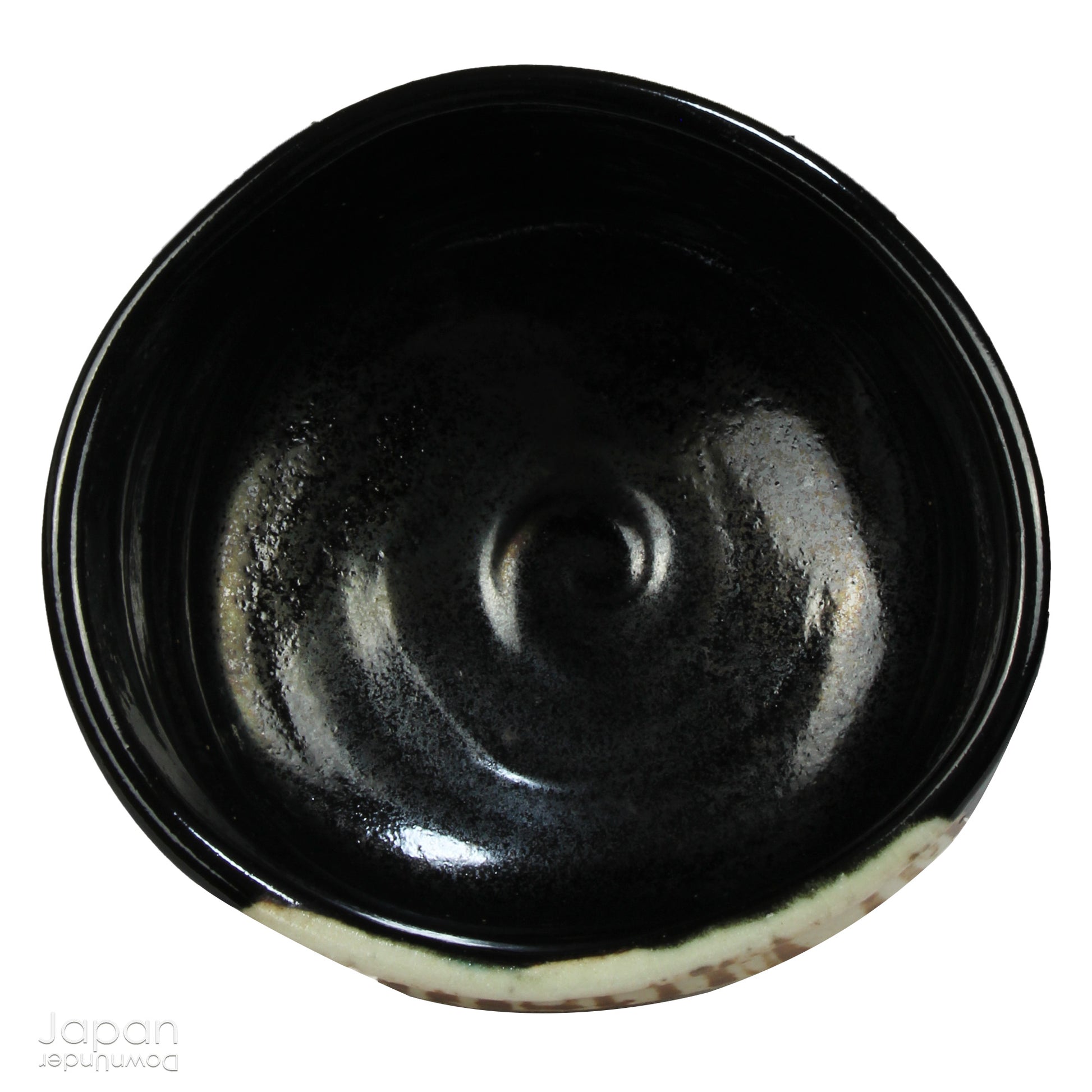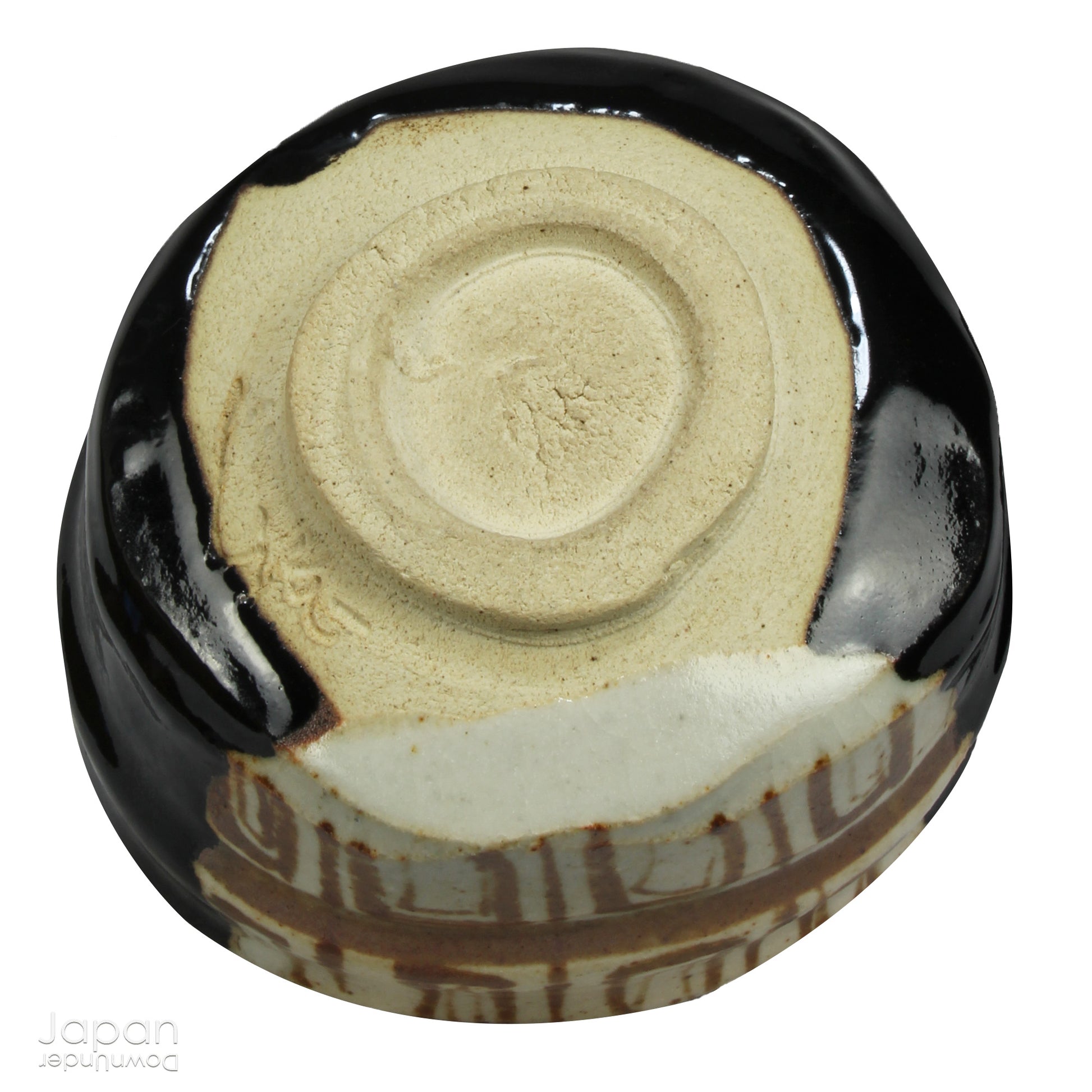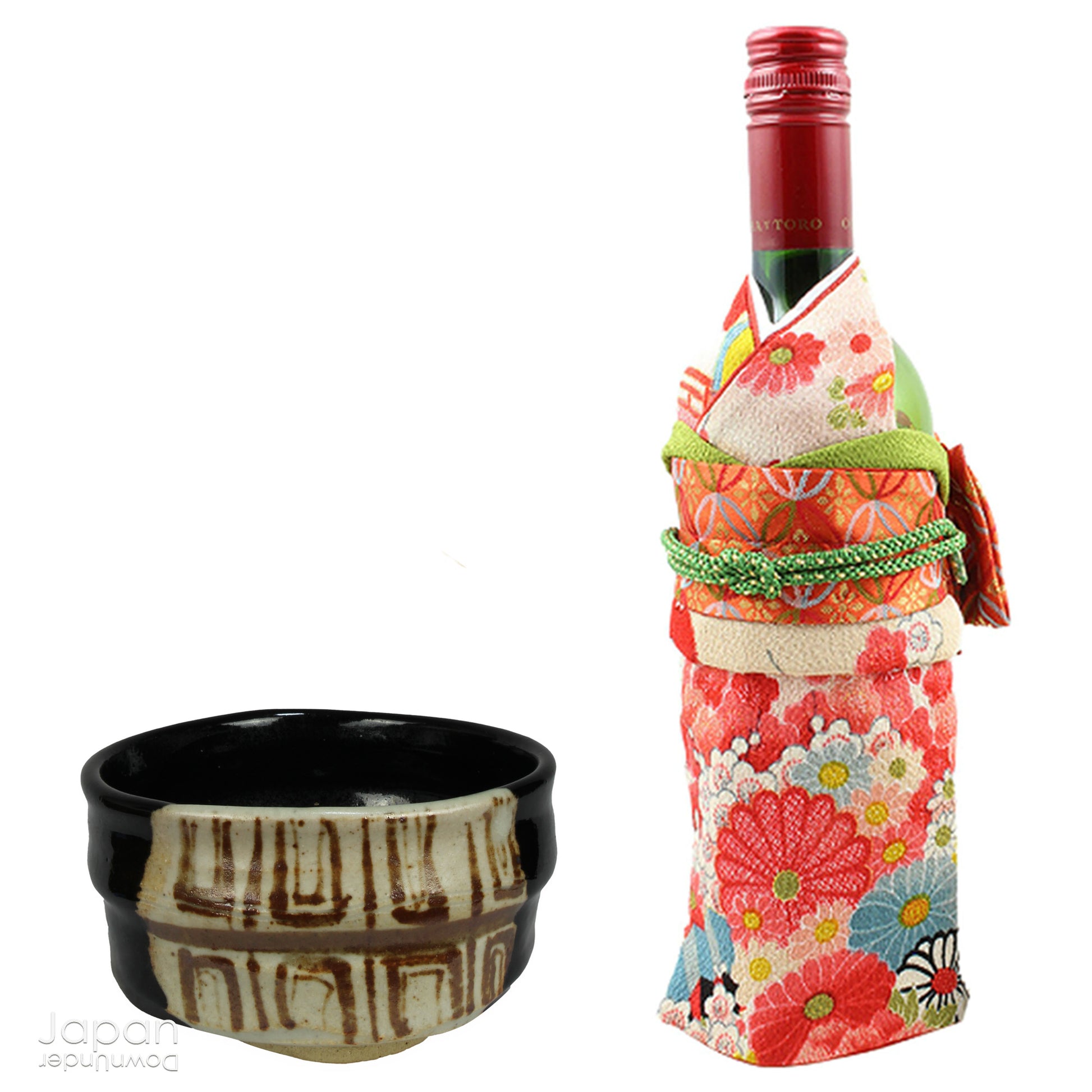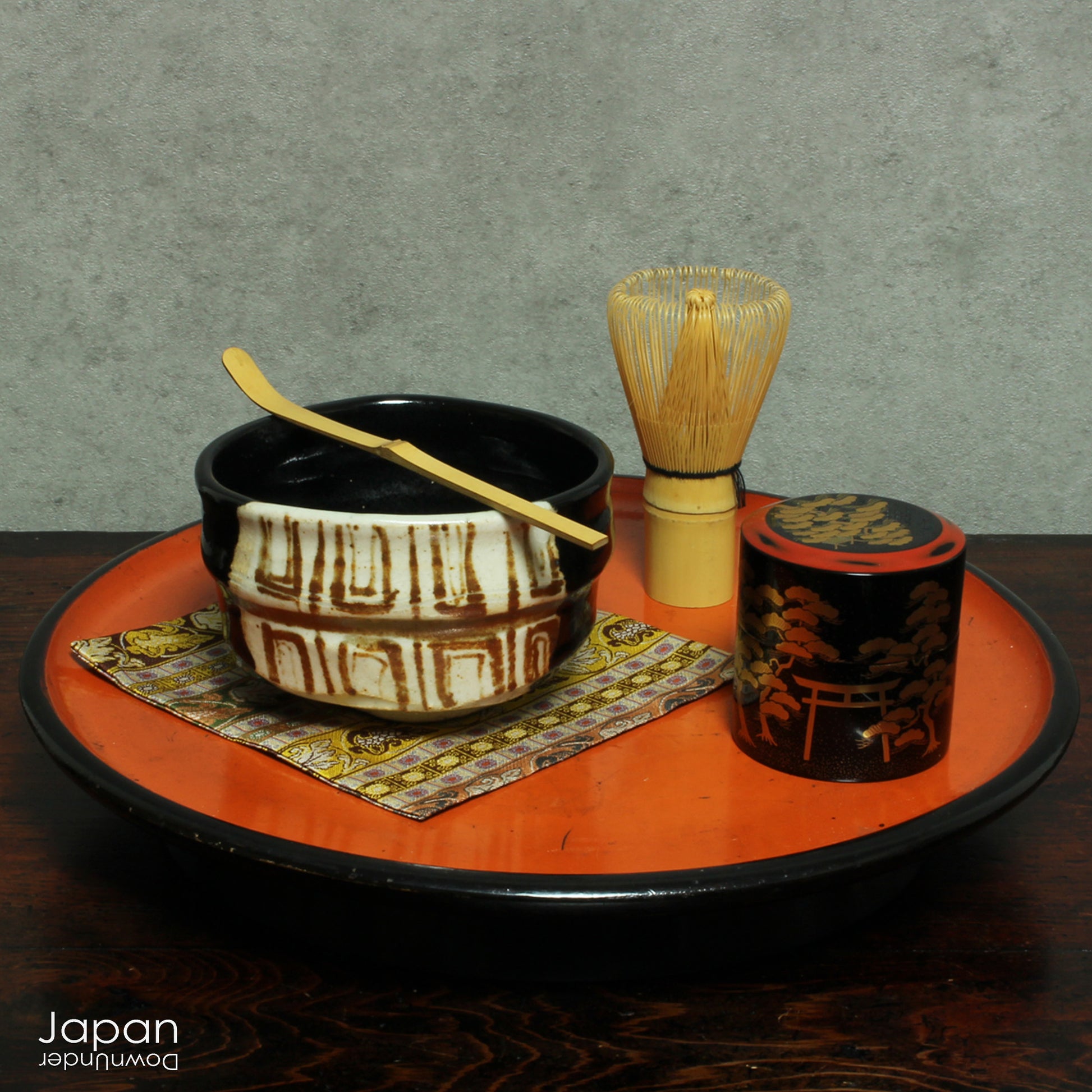JapanDownUnder
stunning black oribe matcha tea bowl with modern geometric design
stunning black oribe matcha tea bowl with modern geometric design
Couldn't load pickup availability
Love Japanese Style Like We Do
Experience the perfect blend of tradition and modernity with this stunning black Oribe matcha tea bowl. Crafted by the talented artist Yoshiyuki Sone, this unique piece boasts a contemporary design with a striking brown and beige geometric accent that adds a touch of sophistication to any tea ceremony.
The glossy black glaze of the bowl, paired with a minimalistic rectangular design, creates a striking contrast against the vibrant green matcha, making each sip feel even more special. True to the Oribe style, the bowl has an intentionally organic and slightly distorted shape, offering a modern yet informal feel that adds character to your tea rituals.
Designed with comfort in mind, the bowl fits perfectly in the cupped hands, providing a natural grip with the indented ridges below the lip and center. The porous clay gives the bowl a solid but not too heavy feel, enhancing its tactile appeal with each use.
This stunning tea bowl comes inscribed with the artist’s signature on the base and is presented in its original wooden storage box, with Yoshiyuki Sone’s name on the lid. In excellent vintage condition, the bowl is free from cracks or chips, ready to bring joy to your daily tea moments or serve as a thoughtful gift for tea enthusiasts.
The Japanese believe that a tea bowl becomes more beautiful with each use, as the oils from your hands and the rich green of the matcha gradually deepen its color and luster. In fact, some tea ceremony masters say that a bowl used frequently, no matter its cost, can become more beautiful than one that is rarely touched.
Like a person, a chawan has its own character, built over time by the hands that hold it and the tea that fills it. This bowl carries the spirit of its maker, Yoshiyuki Sone, and the stories of those who will enjoy it for years to come.
- tea bowl measures 8 cm (3.1") tall x 13 cm (5.1") in diameter.
- total weight 670 gm.
(listing for boxed tea bowl)
SHIPPING INFORMATION
- please read our shipping notes in shipping policy.
- we use recycle packaging and wrap for safety, rather than appearance.
ABOUT OUR VINTAGE, ANTIQUE AND OTHER ITEMS
We list pieces we feel are worthy of display. There may be scratches, dents, fading and signs of wear and tear. We try to explain the condition of each item exactly, but may miss something.
Information regarding the item and it’s age is obtained from dealers and our personal research. We do our best to give you the correct information but please be aware that we cannot guarantee this information.
Please message us prior to purchase with any questions you may have about our products.
ORIBE YAKI WARE
Oribe is a visual style named after the late-16th-century tea master Furuta Oribe 1544-1615). It’s most often seen in pottery, but can be found in textiles and paintings. Oribe was not an actual potter, but rather an art director or designer. He embodied the spirit of wabi tea so completely that he was able to give it a new form and unique vision.
Some Oribe utensils and functional objects were made in standard ceramic shapes and forms. Others, however, were deliberately deformed by a distortion or imbalance to create a new aesthetic sensibility.
Intentionally distorted chawan, decorated with green and brown glazes and abstract designs, created shock and excitement when they first appeared on the tea ceremony scene in Kyoto. The motifs, taken from nature and decorative textile patterns, were ground-breaking in their bold informality and they were also entirely Japanese. It was this recognition of a new Japanese aesthetic that caused tea devotees to cherish oribe ware. It’s ability to capture something of the artistic and spiritual soul of Japan quickly spread throughout the country, and it’s mass popularity continues to this day.
Oribe ware is produced in the Mino area (Aichi and Gifu). Easily recognisable by it’s distinctive green glaze, Oribe yaki has four main types; E-Oribe (patterns done with iron underglaze), Kuro-Oribe (an almost black, dark green glaze),Ao-oribe ( light green glaze) and Aka-Oribe (incised patterns covered with various glazes).
CHAWAN
The chawan is a bowl used for preparing and drinking tea, and originated in China. The earliest chawan in Japan were imported from China between the 13th and the 16th centuries. Until the 15th century in Japan, tea was drunk mainly from a variety of Chinese tea bowls which the Japanese called ‘Tenmoku Chawan.’ This type of Chinese chawan was the preferred tea bowl for the Japanese tea ceremony until the 16th century. The Japanese term ‘tenmoku’ is derived from the name of the Tianmu Mountain, where Japanese priests visited Chinese temples and acquired these tea bowls to bring back to Japan.
By the end of the Kamakura period (1185–1333), as the custom of tea drinking spread throughout Japan and the Tenmoku chawan became desired by all ranks of society, the Japanese began to make their own copies in Seto (Aichi Prefecture). The Japanese particularly liked the bowls with a tapered shape, so most Seto-made Tenmoku chawan had this shape.
With the rise of the wabi tea ceremony in the late Muromachi period (1336–1573), the Ido chawan, kinds of Korean bowls mainly used for rice, also became highly prized in Japan. Korean bowls were a favourite of tea master Sen no Rikyū because of their rough simplicity.
Over time and with the development of the Japanese tea ceremony as a distinct form, local ceramics became more highly prized and developed. Around the Edo period, the chawan was mostly made in Japan.
The connection between ceramics and tea-drinking has a rich, culture. The qualities of handmade ceramic vessels have much in common with the virtues revered by the Japanese tea ceremony. Developing into a true art form, the ceramics and the simple act of tea drinking became symbolic in Japan of an appreciation of nature, simplicity and imperfection, and later as a higher art, advocating harmony and balance.
Tea bowls are never perfectly round, for they must fit the hands comfortably. A chawan is somewhat like a person. It has its own character and given time its own stories to tell. The bowl’s spirit comes from its maker and the people who have held it and enjoyed drinking tea from it.
Share
